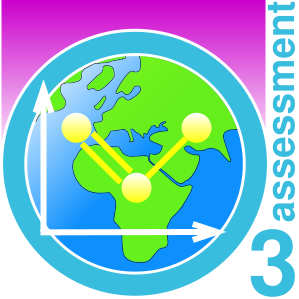O3as
The O3as service provides tools to extract essential information on ozone trends from large climate prediction model data and allows the production of scientifically valuable figures coherently.
Description
O3as is a KIT-based service using Chemistry-Climate Model Initiative (CCMI) data to support the quadrennial assessment (as) of ozone (O3) depletion that is conducted under the auspices of the World Meteorological Organization (WMO) and the United Nations Environment Programme (UNEP) to protect the stratospheric ozone layer. The service provides tools to extract essential information on ozone trends from climate prediction model data produced in CCMI and allows the production of coherent scientific facts and figures regarding past and future ozone trends.
O3as effectively addresses several challenges faced by climate scientists, including the simplification of data processing, which often requires a lot of manual effort, as well as the issue of custom code accessibility, impacting result reproducibility. By simplifying data access and usage, ensuring result reproducibility, and enabling assessment by non-specialists, O3as significantly enhances ozone research and analysis capabilities.
Monitoring and projecting stratospheric ozone is mandated by the UN Environment to safeguard a healthy planet. Numerous climate models regularly project future climate and ozone changes, producing vast amounts of data that require analysis for key metrics. These key metrics are essential for policymakers to evaluate the effectiveness of measures implemented to protect the stratospheric ozone layer. O3as fills a crucial gap by providing a framework for efficiently exploring ozone projections and calculating key metrics.
The service consists of three main components:
- o3skim : to prepare data and reduce it to the parameters of interest
- o3api : to execute quick analysis and provide REST API access
- o3webapp: user friendly web interface for data selection and visualization
Published and relevant datasets:
- CCMI-1 ozone data for O3as service (v1: zonal means and monthly averages)
- Dataset: SBUV ozone measurements for O3as service (v1: zonal means and monthly means of total columns)
- Dataset: ESACCI ozone data for O3as service (v1: zonal means and monthly means of total columns)
Web access:
https://o3as.data.kit.edu
Participating organisations
Mentions
- 1.Author(s): Borja Esteban Sanchis, Valentin Kozlov, Tobias KerzenmacherPublished by Institute of Meteorology and Climate Research, Atmospheric Trace Gases and Remote Sensing (IMK-ASF), Karlsruhe Institute of Technology (KIT),Steinbuch Centre for Computing (SCC), Karlsruhe Institute of Technology (KIT) in 202210.35097/831
- 2.Author(s): Borja Esteban Sanchis, Valentin Kozlov, Tobias KerzenmacherPublished by Institute of Meteorology and Climate Research, Atmospheric Trace Gases and Remote Sensing (IMK-ASF), Karlsruhe Institute of Technology (KIT),Steinbuch Centre for Computing (SCC), Karlsruhe Institute of Technology (KIT) in 202210.35097/675
- 3.Author(s): Borja Esteban Sanchis, Valentin Kozlov, Tobias KerzenmacherPublished by Institute of Meteorology and Climate Research, Atmospheric Trace Gases and Remote Sensing (IMK-ASF), Karlsruhe Institute of Technology (KIT),Steinbuch Centre for Computing (SCC), Karlsruhe Institute of Technology (KIT) in 202210.35097/832
